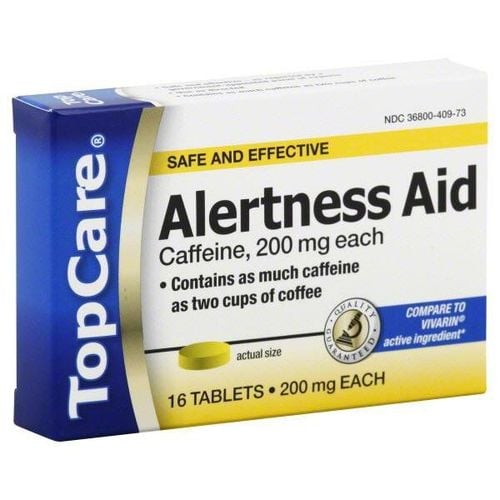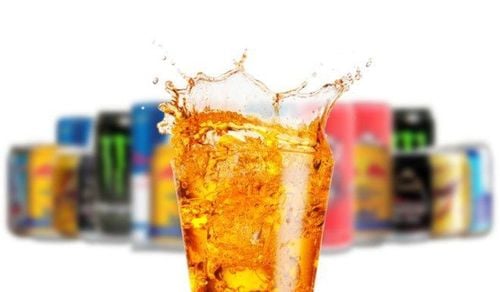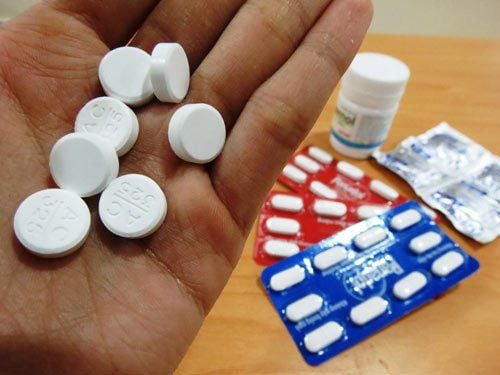This is an automatically translated article.
Energy drinks are often produced in eye-catching colorful cans and are available at convenience stores around the world. They are advertised as a smart drink choice when you feel tired or need a boost. However, energy drinks often contain high levels of sugar as well as stimulants, such as caffeine, which are not recommended by the medical community for young children because they can cause problems. health potential.1. How does energy drink affect children's health?
First of all, many people have a misconception about the potential danger between sports drinks and energy drinks. Sports drinks are used for rehydration purposes after exercise and do not contain caffeine. While no soft drink is recommended for children as most of them are very high in sugar, energy drinks are much less healthy. This is because energy drinks contain trace amounts of additives like caffeine, taurine, guarana, ginseng, L-carnitine, and yohimbine. According to a recent study published in the journal Pediatrics, energy drinks are increasingly becoming a trigger for caffeine overdose. An overdose of stimulants and chemicals in energy drinks can cause dependence, insomnia, dehydration, heart palpitations or increased heart rate in both children and adults. But in children, these symptoms are even more severe. Excessive consumption of energy drinks can also lead to other dangerous conditions for young children, such as mania, seizures, strokes and death.The high caffeine content in energy drinks is considered unsafe for children and adolescents. According to scientific claims, children and adolescents are at particularly high risk of complications from energy drinks because of their smaller body size and more frequent consumption. Excessive caffeine consumption in energy drinks can adversely affect the cardiovascular, nervous, digestive, renal, endocrine systems as well as other psychiatric symptoms in children.
Although these side effects can occur even in healthy children without any noticeable health complications, the symptoms of excessive consumption of stimulants in water increase Stress may be increased in children with conditions such as asthma or heart disease. On the other hand, the additives in energy drinks can also negatively interact with certain medications.
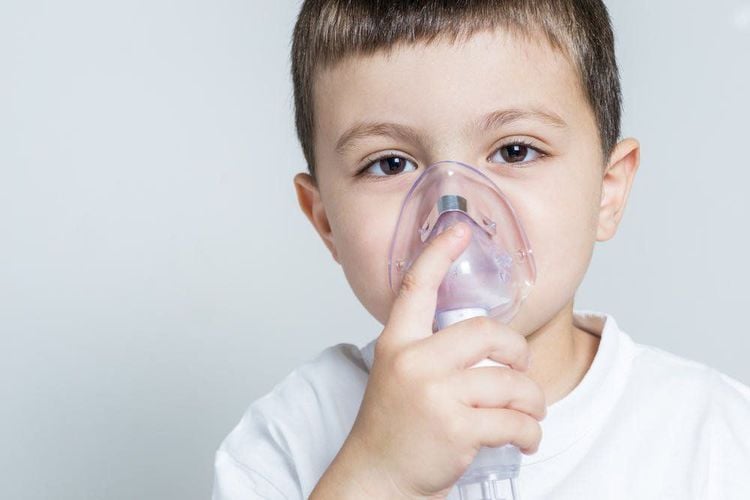
Những triệu chứng của việc tiêu thụ quá nhiều chất kích thích trong nước tăng lực có thể tăng lên ở những trẻ mắc các bệnh như hen suyễn
2. In what situations should you not drink energy drinks?
Here are some situations when energy drinks should not be consumed to avoid the health risks caused by these drinks, including:Children who are sensitive to caffeine Energy drinks should not be consumed before, during and after intense exercise or hard work as it can lead to death Children with heart problems should also not use energy drinks
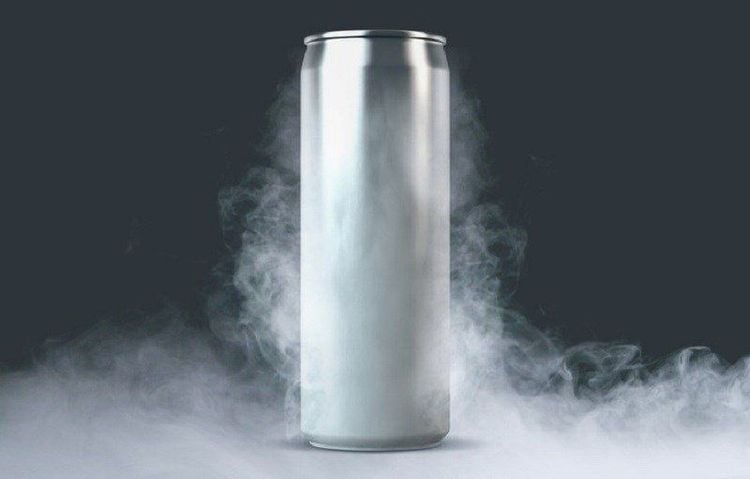
Không nên uống nước tăng lực trước, trong và sau khi tập thể dục cường độ cao hoặc làm các công việc nặng nhọc vì nó có thể dẫn đến tử vong
3. What should children drink to replace energy drinks?
Although beverage companies may try to convince you that their sugary drinks will provide your child with a great source of energy after their play and learning activities. However, the sugars in energy drinks or energy supplements are unnecessary and not good for children's health.In fact, regularly drinking any type of sugary beverage, like soda, sports drinks, fruit juices and energy drinks, can lead to obesity and diabetes. In most cases, children should only drink plain water, or instead drink a little low-fat milk or all-natural juice according to the portions recommended by nutritionists.
For an extra boost of energy, you should consider healthy snacks for kids. Foods like sliced fresh fruit, carrots, and wholemeal crackers will help keep kids from getting too tired or hungry, but don't add any sugar to these energy sources.
In addition, you should also discuss and analyze for children about the potential risks of consuming energy drinks, especially for teenagers who can already buy drinks themselves. In fact, there have been many myths about energy drinks, including that they can help your child lose weight and boost their health, helping them learn more effectively. However, the negative effects of energy drinks far outweigh all their good points. Since children are easily attracted to high-caffeine beverages, such as energy drinks, it's a good idea to make a list of other healthy beverage alternatives for your child.
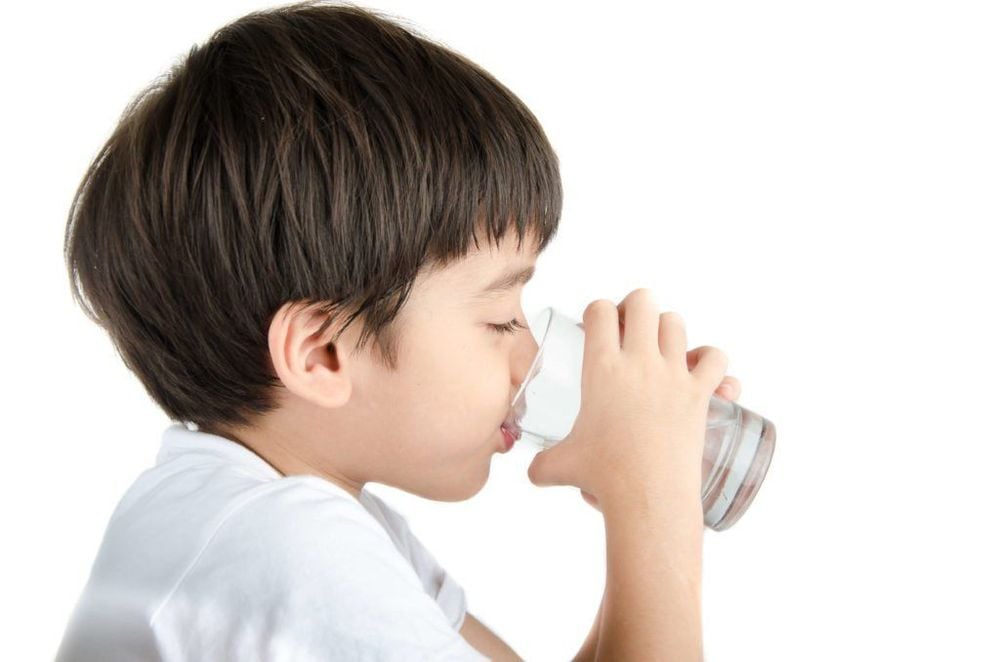
Trong hầu hết các trường hợp, trẻ chỉ nên uống nước bình thường
Please regularly visit Vinmec.com website and update useful information to take care of your baby and family.
Article references sources: webmd.com, health.clevelandclinic.org, arnoldpalmerhospital.com






